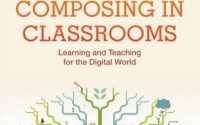Vol. 6.2: Rhetorics, Politics, Technologies
The editors at Present Tense welcome you to Volume 6, Issue 2. As you may have noticed, our home, presenttensejournal.org, looks a little different. Earlier this spring we experienced some unexpected technical difficulties and some downtime, due to security issues. Without getting into too much detail, it’s worth stating that the experience was both frustrating and edifying. That said, we’ve taken the opportunity to give the journal a new look, a more mobile-friendly theme, and simpler construction. We’d also like to welcome two new editors to their first issue: Shreelina Ghosh, our new Multimedia Editor, and Ryan Skinnell, our new Review Editor.
Our new issue features articles on such a range of research, it’s hard to write about them all at once. Articles here focus on pedagogy, students’ rights, investigations of public rhetorics, and the political and social impact of rhetorical choices. While several articles address the effects of technologies and protocols in a range of situations, and others the role of policy decisions, each one showcases the power of rhetoric in everyday life. The topics in this volume range from regional rhetoric to neoliberalism, and writing program position statements to multimodal teaching, though all provide additional attention to the unequal distribution of power in people’s lives. Together, these investigations represent what makes Present Tense an exciting journal – all of these articles are timely and important.
Volume 6.2 includes the following articles and review essays:
Jeffrey Gross’s “The Racial Veil: Small Government Rhetoric, Neoliberalism, and School Resegregation” offers a case study that examines the use of rhetoric of freedom and self-regulation in the creation of a school district.
Christina V. Cedillo’s “Diversity, Technology, and Composition: Honoring Students’ Multimodal Home Places” defines the idea of student multimodal home places and explores pedagogical responses to the concept.
Thomas Sura’s “What Counts as Inclusive?: Articulating Writing Program Stances on Divisive Student Writing” assists in producing explicit position statements about divisive student writing.
James Rushing Daniel’s “Everybody Will be Hip and Rich: Neoliberal Discourse in Silicon Valley” describes and critiques the dominant discourse of Silicon Valley.
Rick Wysocki’s ““There is Already Something Wrong”: Toward a Rhetorical Framework for Aging” explores the rhetorical construction of aging and the discourses of ableism and ageism.
Jens Lloyd’s “LeBron’s Essay and the Circulation of Regional Rhetoric” analyzes LeBron James’ position as regional writer and rhetor.
Adam R. Pope’s “Bloodstained, Unpacking the Affect of a Kickstarter Success” tackles the rhetorical complexity of successful Kickstarter campaigns.
Paul Lynch and Matthew Miller have put together an amazing annotated bibliography in “Twenty-Five Years of Faith in Writing: Religion and Composition, 1992-2017”
Shersta A. Chabot reviews Gries’ Still Life with Rhetoric
Shuv Raj Rana Bhat reviews Miller and McVee’s Multimodal Composing in Classrooms
The editors wish to thank our authors for their excellent scholarship, our reviewers for their time and feedback, our many advisers who have guided us through the years, and Sarah Bublitz for her copyediting work on “Twenty-five Years of Faith in Writing: Religion and Composition, 1992-2017.” Most of all, thanks to our readers for supporting Present Tense.
Sincerely,
Ehren Helmut Pflugfelder, Managing Editor
Megan Schoen, Managing Editor
Caitlan Spronk, Technical Editor
Shreelina Ghosh, Multimedia Editor
Elizabeth L. Angeli, Annotated Bibliography Editor
Don Unger, Social Media Editor
Ryan Skinnell, Review Editor
Joshua Prenosil, Business Editor
Jessica E. Clements, Style Editor
Cristyn L. Elder, Style Editor
John Williford, Design Editor
September, 2017


